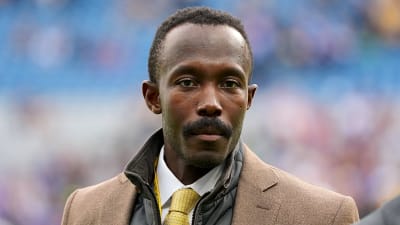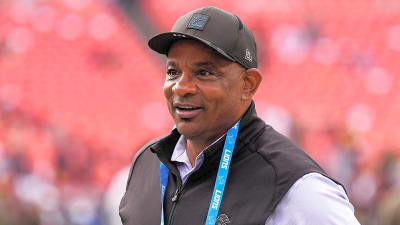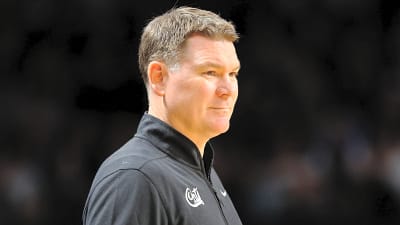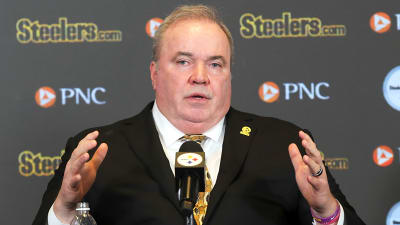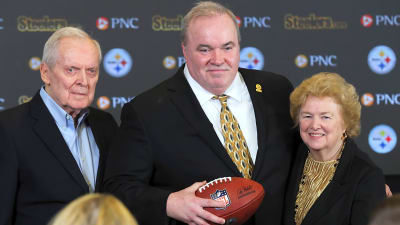
During a late-season conversation with David Laurila of FanGraphs, Bubba Chandler, the Pittsburgh Pirates' rookie pitcher, reflected on his first month in the big leagues. Perhaps most notable were Chandler's observations about what made pitching in Major League Baseball different from the minor leagues.
The 23-year-old from Bogart, Georgia, was promoted on August 22, and over 31.1 innings, has already shown flashes of the dominance that made him a top-100 prospect, while firing a fastball that sizzled at 98.9 mph on average. He finished his MLB season with a 4.02 ERA and 0.93 WHIP, striking out 31 to only four walks. Chandler maintains his rookie eligibility for 2026 and will enter next season as an early favorite for National League Rookie of the Year.
While five of his seven outings were stellar, the two bumpy ones served as a potent learning experience. It was in those moments, against lineups like the Brewers and Dodgers, that the reality of the major leagues crystallized for the young right-hander.
The Mental Leap and a Shrinking Margin for Error
Chandler explained his initial lesson simply: “I don’t want to say the game is harder, but it is definitely a lot more thinking.” For him, the climb from Triple-A to the majors was a shift into a higher gear of mental engagement. Every single pitch required a purpose. He has learned that with each step up the professional ladder, the margin for error shrinks. To Chandler, there's a stark difference in the level of mental fortitude required.
“Up here,” he noted, “I’ve made a couple of mistake pitches that were hit pretty hard, whereas in Triple-A they might have gotten fouled off.” His focus has become more of a game of damage control: limiting mistakes and, more importantly, managing when they happened—with the bases empty or with runners on.
To Chandler, these mistake pitches were fundamentally about command. “If you perfectly command the ball every pitch, you’re going to get good results pretty much. Right?” he mused. But he quickly acknowledged the elite caliber of big league hitters, adding a layer of respect for the challenge.
“At the same time, these are big league hitters. If you execute a fastball at the very top right corner, or the top left corner of the strike zone at 100 miles an hour, they can still hit a line drive back side. That’s the beauty of how hard this game is," said Chandler.
Mental Warfare: The Game Within the Game
This constant, pitch-by-pitch calculation was more draining than any physical exertion. Chandler confessed that after his first few outings, where he hadn't thrown an excessive number of pitches, he felt more mentally drained than he had after 100-pitch efforts in the minors.
“There is that mental warfare that goes on when you’re on the mound,” he described. “You know that you’re not going to be perfect, but how good can you be on this one pitch, right here, right now?”
He found this intense challenge not daunting, but “actually really cool,” embracing the pressure that comes with being a pitcher who, in his words, can "take over the game" much like a quarterback in football. It's not all that surprising to hear this analogy from the former Clemson football recruit.
Bubba's Pitching Ninja
This mindset led Chandler to a crucial adjustment in his approach during his six or so weeks in Pittsburgh. Early on, he found himself trying to be too perfect, attempting to make his already-powerful stuff even nastier. He realized this was a trap. “Giving guys too much credit and trying to make my stuff nastier, or trying to be perfect, is something I kind of battled my first few outings,” he admitted.
He shifted his strategy from pure power to intelligent execution. “I’ll sacrifice some stuff — I’ll call it my ‘Pitching Ninja’ — to get an out,” Chandler stated. He prioritized pitching to a hitter's weakness over simply unleashing his most devastating pitch. If a batter struggled with fastballs away, Chandler would pepper the outside corner, even if it meant holding back his best breaking ball for a more critical moment.
This new approach hinged on preparation. Scouting reports became his playbook. “Definitely,” he affirmed when asked about their importance. He dove into the details of a hitter’s tendencies: do they swing early in their first at-bat? What changes in their second? He was already thinking about the long game, strategizing how to approach a hitter in the first inning versus the sixth, and when to unveil his best out-pitch.
Last month, the Pirates signaled their continued commitment to building an elite pitching staff by hiring BIll Murphy from the Houston Astros, a renowned, young pitching mind. For Chandler, the bright future everyone predicted is now a demanding present. His electric arm has gotten him to the show, but his evolving mind is what will keep him there.
More must-reads:
- Cincinnati Reds add needed power bat in Eugenio Suarez
- The Dominican Republic's World Baseball Classic lineup looks even more stacked after Juan Soto announcement
- The 'MLB active doubles leaders' quiz
Breaking News
Trending News
Customize Your Newsletter
 +
+
Get the latest news and rumors, customized to your favorite sports and teams. Emailed daily. Always free!
